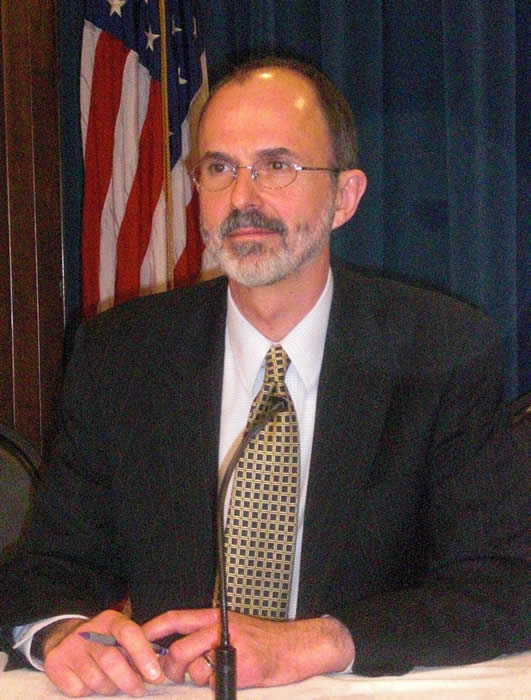June 2009 – “More than two decades after the first meetings were hosted by the Specialized Carriers & Rigging Association (SC&RA) that gave rise to this organization,” said NCCCO Executive Director, Graham Brent, “it is important to remember that the origins of this national certification program were—and remain—overwhelmingly grass-roots in nature.”
Brent was testifying before the OSHA panel convened in March over four days for the purposes of receiving comments on aspects of the Proposed Rule that, among other provisions, would update training and certification requirements for crane operators and signalpersons.
“The industry representatives who participated in the task forces and forums that evolved into NCCCO were—and still are—drawn from such groups as: contractors, crane rental firms, labor unions, owners, steel erectors, manufacturers, construction firms, training consultants, and insurance companies,” Brent stated.
NCCCO’s mission was—and remains today – to provide a thorough, independent assessment of operator knowledge and skills, he said. By this means, CCO certification seeks to enhance lifting equipment safety, reduce workplace risk, improve performance records, stimulate training, and give due recognition to the professional skill of crane operation.

The volunteers that staff NCCCO committees responsible for the regular review and maintenance of CCO written and practical examinations are driven by a passion—evident today in NCCCO’s exam management committees that meet throughout the year to ensure the continuing fairness and integrity of the testing process—to reduce accidents, save lives and, generally, to make the construction industry a safer environment for all to work in, Brent said.
“In essence, this is a program that was developed by industry, for industry, and whose sustained support has led to the request—which NCCCO has met—for additional certification programs (such as for articulating boom crane operators) as well as “non-crane operating” crafts whose work brings them into contact with cranes, such as riggers, signalpersons, and inspectors.”
Since NCCCO began testing in April 1996, Brent noted that over 365,000 written and practical exams had been successfully administered to more than 65,000 crane operators in all 50 states. NCCCO has been nationally accredited as a personnel certification organization since 1998, and internationally accredited to ISO 17024 since 2007 through the personnel certification accreditation program developed and administered by ANSI—the American National Standards Institute.
CCO certification has been formally recognized by Federal OSHA for over a decade, and by more than a dozen other federal agencies and national organizations—including the Associated General Contractors of America, the International Union of Operating Engineers, and the Steel Erectors Association of America. “All states that have introduced licensing requirements for crane operators since the CCO program was introduced have accepted or adopted CCO certification by reference,” Brent stated.
The premise of certification was simple, he said. “A trained individual is a safer individual by virtue of the knowledge and skill he or she has obtained during the training process. Certification—providing it is professionally developed and maintained in accordance with rigorous standards of examination development (a confirmation available through an appropriate accreditation process)—is an employer’s—as well as the general public’s—best assurance that the required training has been effective—that, in fact, learning has, taken place.”
Brent reaffirmed NCCCO’s position that it was critical that all personnel involved in crane operations—including but not limited to crane operators and signalpersons— be independently certified as to their knowledge and skill related to crane operation. And, furthermore, that this certification was conducted by a third-party company or organization that conducted no training and had been accredited by an accrediting body that audits and accredits personnel certification programs.
Read the full text of Brent’s testimony, including responses to questions from Federal OSHA representatives and industry participants.